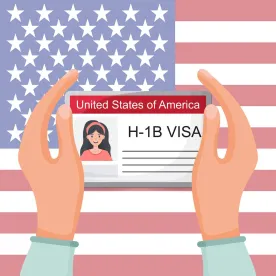Highlights
Beginning July 16, 2023, individuals who hold an H-1B visa in the U.S. may relocate with their immediate family members to Canada
Individuals are permitted to simultaneously work with multiple Canadian employers, and spouses and dependents will be eligible for work and study permits
This announcement may be an attractive option for H-1B visa holders in the U.S. who are approaching the end of their six-year limit without other U.S. immigration relief
The Canadian Minister of Immigration, Sean Fraser, recently announced that beginning July 16, 2023, individuals who hold an H-1B visa in the U.S. may relocate with their immediate family members to Canada, even without a job offer, pursuant to Canada’s Tech Talent Strategy.
Such individuals who are approved will receive an “open” work permit, meaning their work authorization is not tied to a specific employer, and they will be allowed to work for almost any employer for up to three years. In addition, side jobs with other Canadian employers will be permitted. Spouses and dependents are eligible to join, and can receive an open work permit, as well as study permits.
According to the Canadian government, this new program will remain in effect for one year or until Immigration, Refugees and Citizenship Canada receives 10,000 applications from principal applicants. Given that several Canadian pilot programs in the past have become permanent, it is possible that this initiative will as well.
Through this initiative, the Canadian government is also highlighting opportunities for digital nomads to work in Canada. These individuals may work remotely in Canada for a U.S. employer, provided the work is benefitting a U.S. entity. While the latter has always been the case, the new open work permit allows these digital nomads to provide work on behalf of the principal employer’s subsidiary in addition to the remote work conducted on behalf of the U.S. entity.
This announcement may be an attractive option for H-1B visa holders in the U.S. who are approaching the end of their six-year limit without other U.S. immigration relief. Moreover, it will provide U.S. employers with an opportunity to retain talent through temporary transfers to a Canadian affiliate. However, depending on the long-term goals of both the employee and employer, individuals working for employers in the U.S. who also have a presence in Canada may be better suited to apply for a “closed” or employer-specific work permit, which will provide more long-term Canadian immigration options.



 />i
/>i

